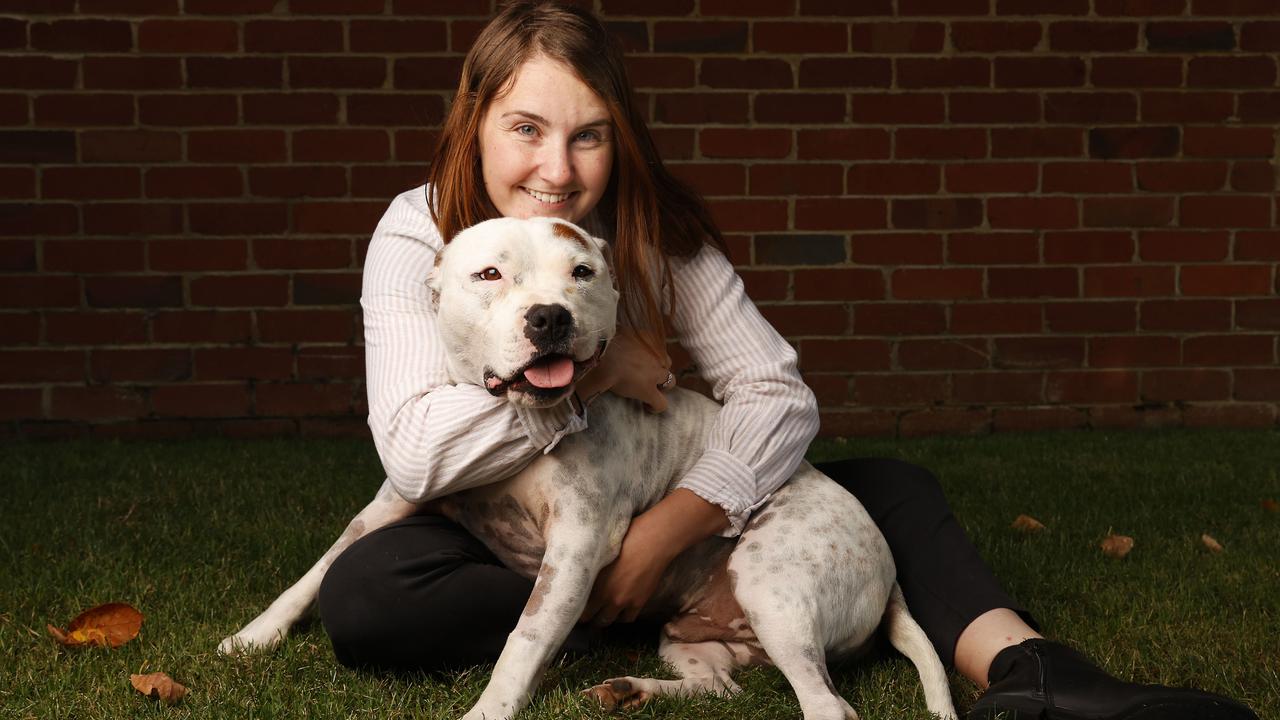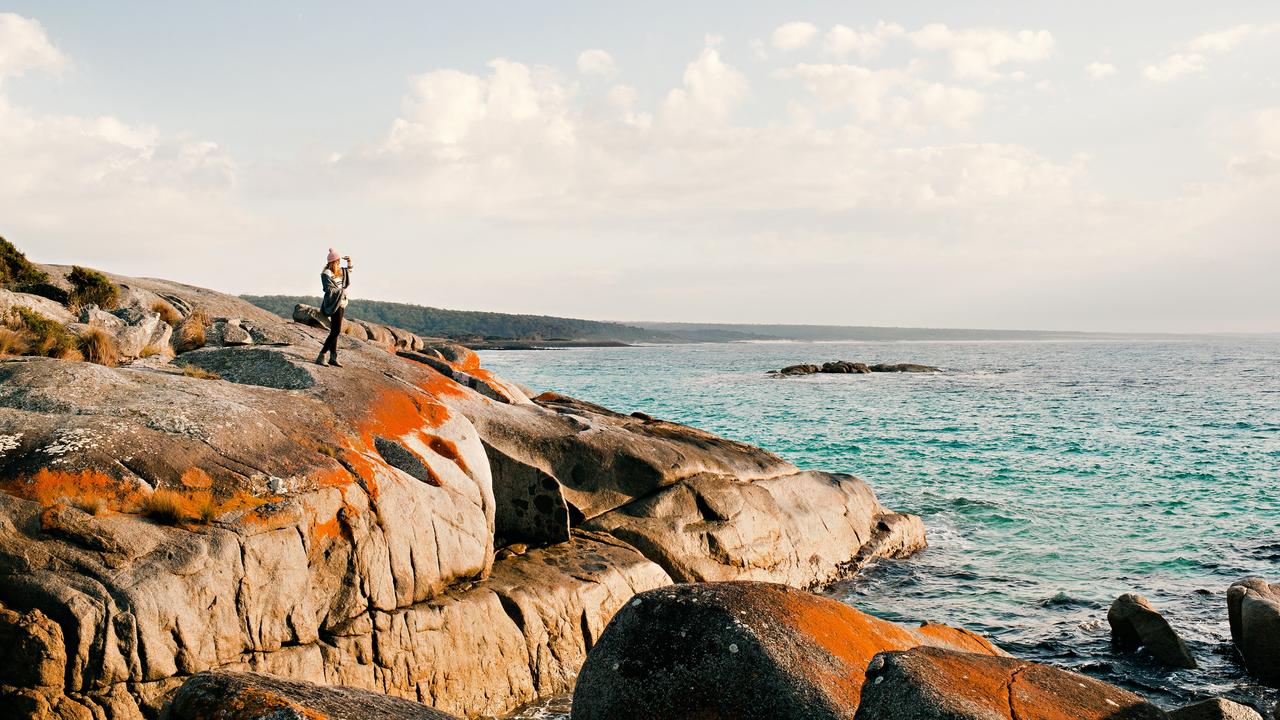PM visits Margate fish plant as feds ponder aquaculture’s future in Macquarie Harbour
Prime Minister Anthony Albanese strongly backs Tassie’s salmon industry during spontaneous visit to the state in a move welcomed by Salmon Tasmania.
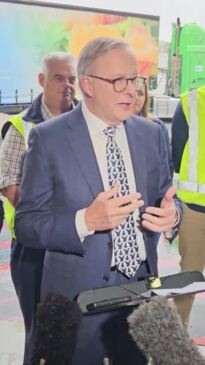
Tasmania
Don't miss out on the headlines from Tasmania. Followed categories will be added to My News.
Prime Minister Anthony Albanese has declared his strong support for the Tasmanian salmon industry during a visit to a Tassal plant in the state’s south.
Flanked by federal Labor MPs and salmon industry representatives, Mr Albanese made a whistlestop tour of the complex at Baretta, south of Hobart, on Wednesday afternoon.
Mr Albanese said he had been a supporter of the industry for decades — but he did not announce any new industry assistance or measures to improve environmental protection.
“My government supports jobs, we support regional economic development and we support sustainability — and this industry has a vital role to play,” he said.
“This industry is worth a billion dollars, very vital for Tasmania, vital for Australia, and vital for our national interest.
“In fact, some 90 per cent of Australia’s salmon comes from Tasmania and it is a major export industry.
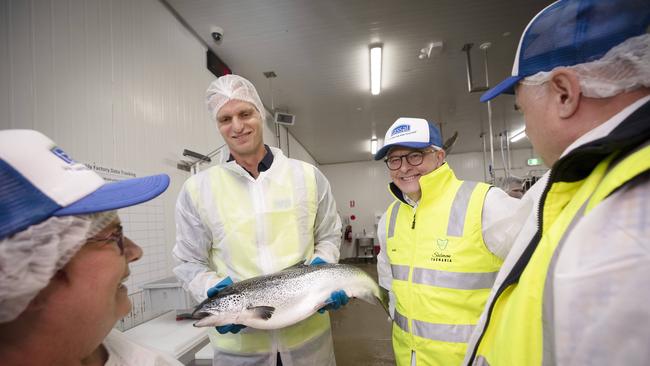
“Some might argue it’s Tasmania’s second major export industry only behind the export of Queens, as we’ve seen in the last week … I know that you’re very proud, as are all Australians are of the ascension to the throne of Queen Mary there in Denmark.”
Mr Albanese’s visit comes as the federal government faces pressure over the future of the industry in Macquarie Harbour.
Conservationists have appealed to the government to review existing aquaculture permits granted under the provisions of the Environment Protection and Biodiversity Conservation Act to better protect the endangered Maugean skate.
A decision by Environment Minister Tanya Plibersek is pending, but Mr Albanese said he was confident a win-win solution could be found that saved the jobs of salmon industry workers and protect the skate.
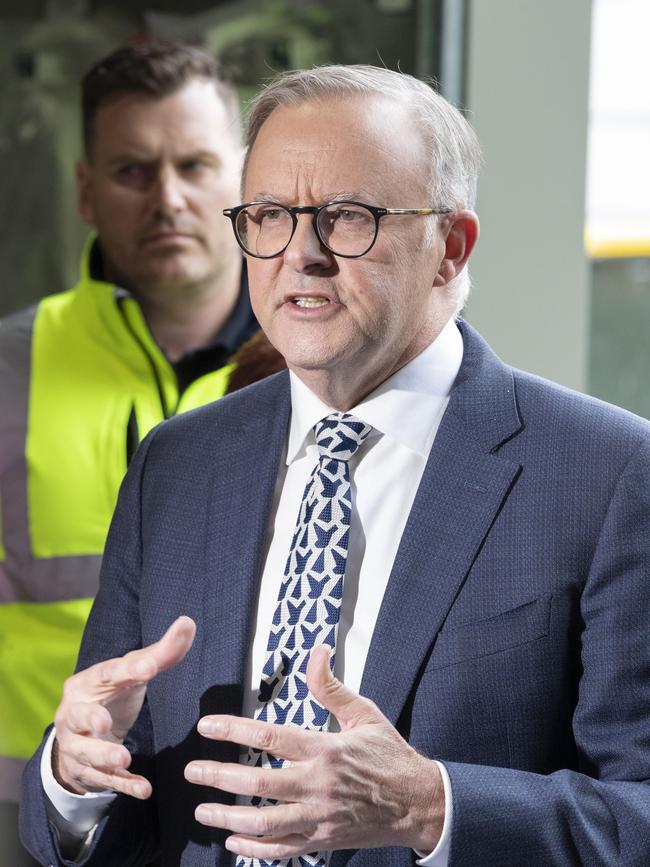
“I support their jobs, I support all jobs. I am a pro-jobs prime minister and we need to support jobs and there’s no conflict between jobs and sustainability,” he told reporters.
“Sustainability has to be something that is built into every industry.
“We have environmental laws that have to be dealt with … they’re not optional, they’re the law and we comply with the law and we do so in a sustainable way and we’re working with industry to work through these issues and I’m confident that we’ll continue to do so.
“There are some people who want to shut down every job that’s created everywhere.
“What I do is to work through sensible environmental positions, sustainable positions, make sure that we work together and use science to find solutions to challenges which are there.”
Chief Executive of Salmon Tasmania Luke Martin welcomed Mr Albanese’s backing of the industry.
“There were about 5,000 people whose jobs and livelihoods wrapped up in Tasmanian salmon, nine out of 10 of them in regional Tasmanian communities, particularly here in the south,” he said.
“Those people are extremely proud of what they do and we’re very proud of the role that they play in an industry that is in many ways world class but also in creating a product that is enjoyed by hundreds of thousands and millions of Australians every day and will be on dinner tables all over the country.
“Any opportunity to be able to share what this industry does with our political leaders is one we take up.”
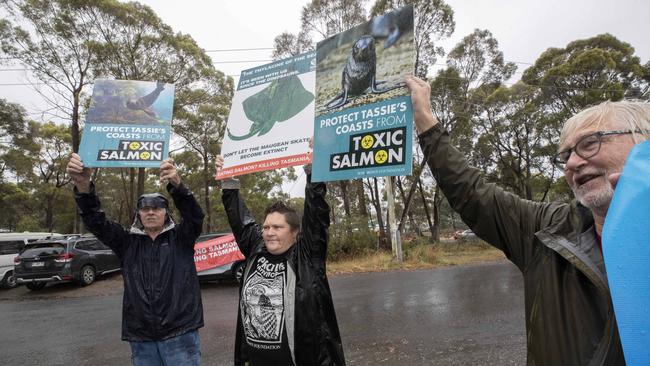
A small group of protesters chanting “Save the Maugean skate” gathered near the gate of the plant during the prime ministers visit.
PM’s spontaneous visit to Margate fish plant met with protesters
Prime Minister Anthony Albanese has visited a fish processing plant during a short-notice visit to Tasmania.
Mr Albanese was joined by federal Labor MPs and aquaculture industry representatives during a visit to Tassal’s Margate factory on Wednesday afternoon.
The visit was announced 90 minutes before Mr Albanese’s scheduled arrival from Adelaide.
It comes as the federal government faces pressure over the future of the industry in Macquarie Harbour.
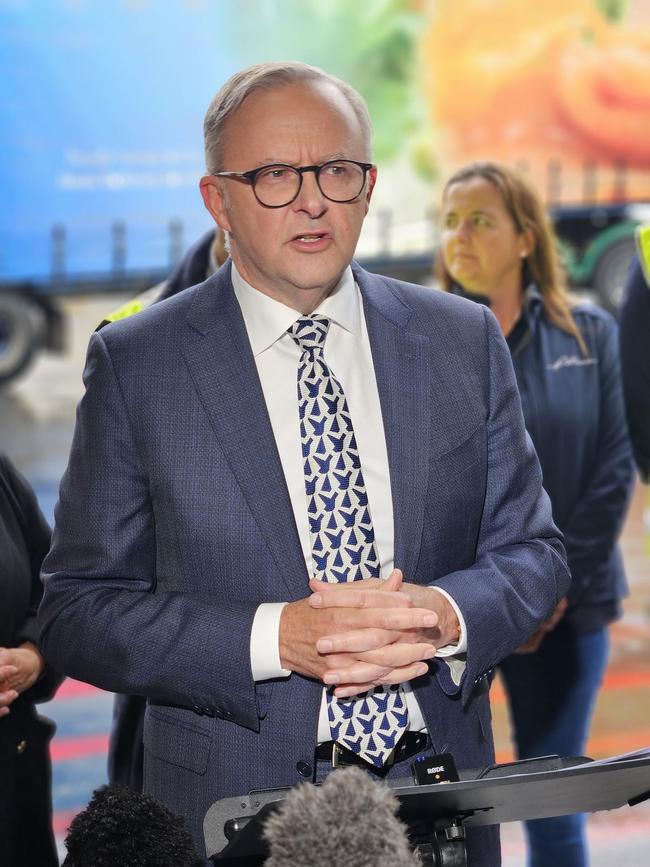
Conservatonists have appealed to the government to review existing aquaculture permits granted under the provisions of the Environment Protection and Biodiversity Conservation Act to better protect the endangered Maugean skate.
A decision by Environment Minister Tanya Plibersek is pending.
Mr Albanese is expected to hold a media conference at the conclusion of his visit.
Premier Jeremy Rockliff reiterated his standing invitation to Mr Albanese to visit Macquarie Harbour and “meet with workers who face losing their jobs if Minister Plibersek chooses to shut down their industry and force them to join the Centrelink queue”.
“The salmon industry is the lifeblood of the west coast community and the flow on effects from any closure will have devastating ramifications for the broader community, including local schools and health services,” he said.
“Our government firmly believes that the Maugean Skate and the salmon industry can co-exist.
“The salmon industry is an economic powerhouse, especially in our regional communities. It’s valued at $1.3 billion and contributes millions of dollars annually into the Tasmanian economy.”
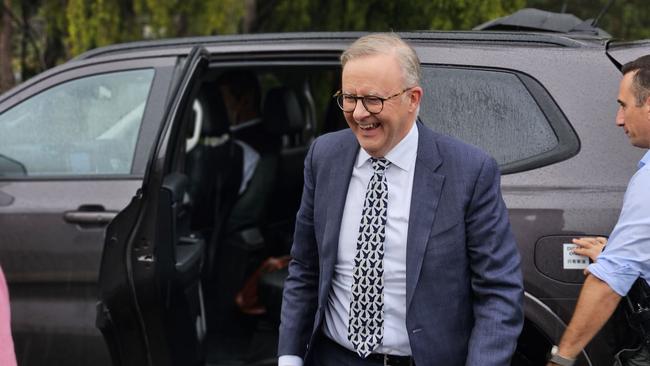
Liberal Senator Jonno Duniam said Mr Albanese’s “secretive and rushed” visit to Tasmania was an opportunity to provide answers to questions many Tasmanians have and to clear up certainty to Tasmanian workers.
“Will the Prime Minister rule out pausing or shutting down the sustainable West Coast salmon industry as a result of this green activist initiated review?” he said.
“Will the Prime Minister commit to immediately cease funding the Environmental Defenders Office?
“Will the Prime Minister stop leaving Tasmanian in the lurch and direct his Environment Minister to finish her environmental law changes, and guarantee that Tasmanian forestry and resources jobs won’t be lost as a result?
“Having failed to provide lasting and meaningful cost of living relief, address the GP crisis in regional Tasmania and having to protect Tasmania’s GST share, answers to these questions are essential for Tasmanians doing it tough.”




